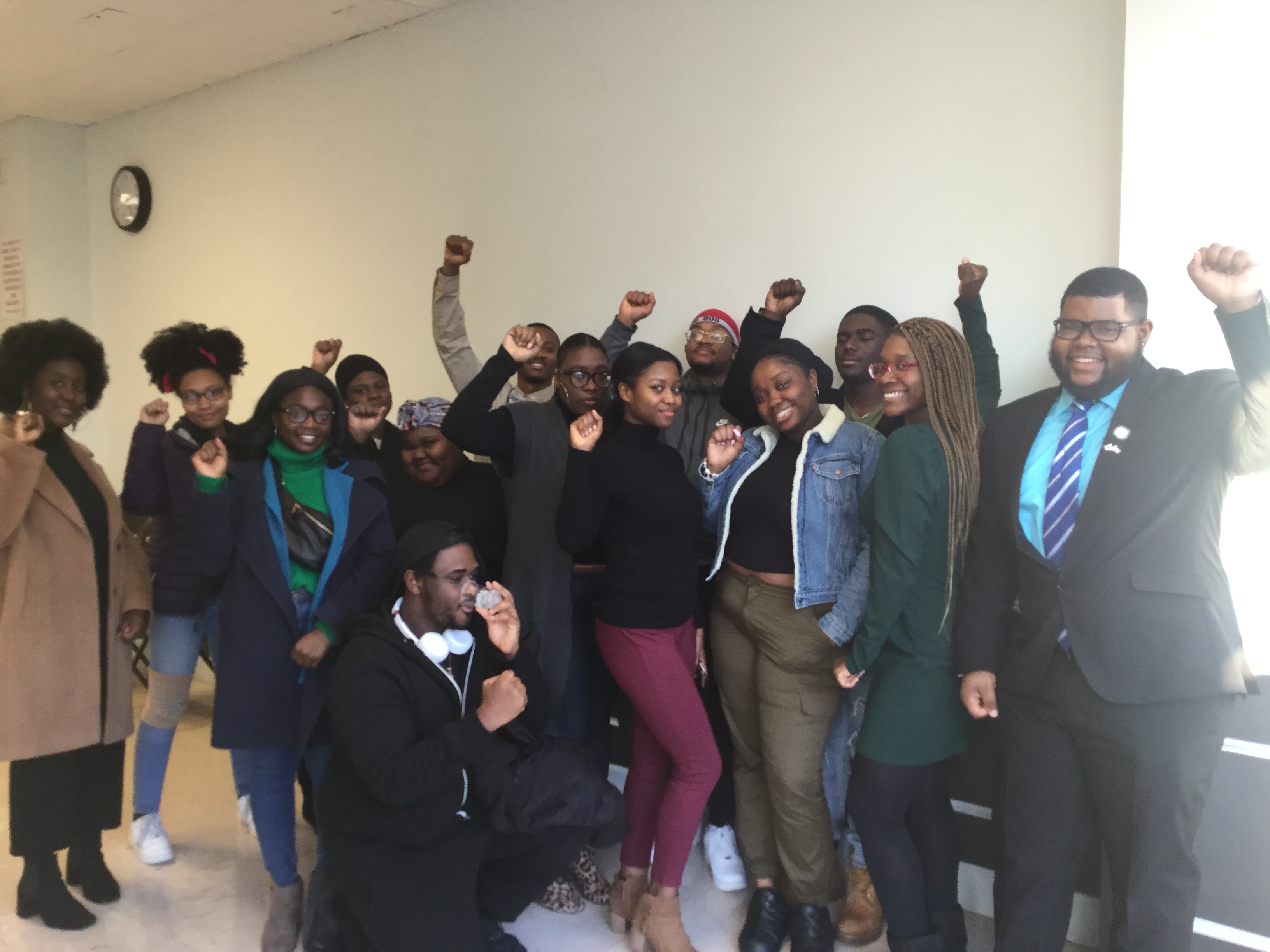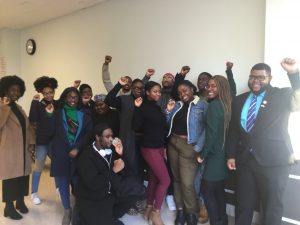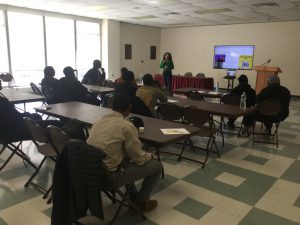

Written By Gabriela Flores
The Black Student Union chapter at Brooklyn College hosted an event alongside black leaders from Long Island University, John Jay, and public organizations to create a safe space for black and brown students to speak on common interests.
“We aim to educate others on the black and brown experience of students,” said Amina Taylor, Vice President of the BSU at Brooklyn College, “as well as create platforms to ease the oppressive sanctions placed on people of color in our community,” she said.
Founded in 1968 in response to the fight for civil rights, BSU was created by the University of Kansas to provide a safe environment for black students to uplift their community on college grounds. BSU was established at Brooklyn College in 2013, where members continue to preserve black unity.
Through open-table discussions, attendees spoke with one another on police brutality, mass incarceration, the relationship between black men and women, and other pressing issues, such as relationship with law enforcement.
”There is a reality out there between policing and black people,” said Attorney Zamir Ben-Dan from The Legal Aid Society, “I try to find the right balance between protecting yourself legally and protecting yourself physically from being harmed by the police,” he said.
In 2016, the Census Bureau recorded an estimated 40 million black people living in America. According to the NAACP, in 2014, African Americans made up 34% of the 6.8 million imprisoned population. African Americans are more than five times more likely to be incarcerated than white people. To reduce the chances of detainment, Ben-Dan advised the audience to keep their words few and respectful. If need be, the person in question should lie, unless asked for their name, address, and date of birth. “I would say lying is the worst policy when it comes to dealing with police. Honesty is the second-worst policy,” said Ben-Dan.
Once verbal interaction proceeds to a physical search, with “reasonable suspicion” of a crime, you are allowed not to give your consent. Under the Right to Know Act, NYPD officers must inform you of this right; but Level three Reasonable Suspicion to Stop states that permission to frisk a suspect is not needed if the suspect is believed to be ”armed and dangerous.”
The subject of racial profiling carried into a conversation of the communal responsibility black women and men must have in protecting one another. Recently, Gayle King asked former WNBA player Lisa Leslie about the complications of preserving Kobe Bryant’s legacy despite his rape charge. To discussion leader Daiquan Llewellyn, President of John Jay BSU, King was “pushing” Leslie to speak negatively about the late athlete.
“This is what society is trying to do to our black men. They are trying to criminalize them,” said Llewellyn. “We have to make sure we are protecting our brothers and sisters, protecting our women and men.”
The audience also shared their thoughts on the possible solutions for black women and men to establish mutual respect. Most female attendees shared that men of color must become more responsive in situations where women of color are targeted, harassed, or violated.
“I do feel like black men need to tap into their leadership when it comes to defending their counterparts,” said Charlexia Rey, president of BC’s BSU, “because if you are not going to protect your own, who else is going to do it? I show up for black women and black men. I show up for everyone.”
Earlier, a discussion of the history of the n-word created a debate on its appropriateness in modern-day slang and hip-hop culture. During a Kendrick Lamar concert in Alabama, a white fan was brought on stage to rap along to “M.A.A.D City.” During her performance, the 15-year-old rapped the n-word, to which Lamar stopped and addressed her. The participants collectively agreed with the rapper’s actions, and that the n-word should be off-limits for white people. However, the question of whether the n-word is unifying or insulting to the black community created some polarization.
“We did not create it. It did not come from our language, it didn’t come from our positive history, from our ancestry,” said Rey. “It was imposed on us as a method of oppression.”
On the other hand, to those who apply the term colloquially in multi-racial friend groups, the difference in spaces is essential. “Correction is required; because social acceptance is just the nature of your friendship, but that person may have a misconception,” said New York Life associate Schemia Rowan. “You still have to take responsibility to let the person know it is not acceptable to say in other environments.”
In speaking through their perspectives, vocal contributors created a mutual understanding of their role as members of the black community: to unify and push forward a plan for social change.
“We are not monolithic. We like to do different things,” said Latyna M. Humphrey, President of the Central Ohio Young Black Democrats. “But we have to build our agenda together.”

